Foreword
My brother, Richard, would have been delighted by the essays in this book, for they are proof of a new generations recommitment to the ideals of free speech, ideals that are central not just to the efficient working of our democracy but to the definition of what it means to be a free person in a free society. Richard knew these elementary facts, which accounts for his determination that speech and associational rights be afforded bounds so generous that there could be no doubt that they were fundamental bedrock. This latitudinarian outlook will necessarily license speech and expressive acts that are unpopular, offensive, and even immoral in the eyes of many, but that is hardly surprising: An inoffensive Caspar Milquetoast will hardly ever need protection from a government for what he says or does. As the familiar epigram would have it, freedom of speech sometimes means freedom for the thought we hate.
This elementary constitutional principle has lately gone missing in places where it was once fiercely embraced, namely, our colleges and universities, where truth must be supreme and the search for it must be a paramount object. Achieving a congenial environment for that search requires tolerating the fullest range of expression, even edgy and raucous expression, and providing that environment is an obligation that falls most heavily on state institutions, where the First Amendment has the force of law. An institution, even a state one, of course has a right to have core ethical values and to express them. It may, in some circumstances, have a duty to have such values. But that right or duty cannot extend to suppressing or punishing thoughts and speech that run contrary to those values: An institutions ethical views cannot trump its legal obligations. The numerous cases in which federal courts over the past few decades have had to hold universityspeech codes unconstitutional is proof enough that free-speech principles are in need of some significant rehabilitation.
It is not easy to describe the basic republican free-speech instinct as either conservative or liberal, nor is it necessary or useful to do so. In its neutral application over a wide range of expression, it is a manifestation of the classical liberal faith that free speech, in the long term, is both efficient and moral, that promoting it is both useful and just. The instinct is conservative in the sense that it preserves the basic values of restraint, civility, humility, and tolerance that have characterized western civilization since the Enlightenment. It encourages listening and counter-speech as the most appropriate response to speech in most instances and trusts rationality and good will to carry the day. These are large assumptions, but we as a country have staked our future on them. All in all, it is more than apparent that we made a good bet.
My brothers instinctive attachment to this faith is evident from his First Amendment cases. They attracted a lot of attention from the public and the profession, and in their even-handedness they were part of the reason that he was, as the expression goes, the liberals favorite conservative and the conservatives favorite liberal. So it is not surprising that the Speech Communication Associations Commission on Freedom of Expression established the Richard S. Arnold Prize for Scholarship in Free Speech, describing my brother as a jurist noted for his outstanding opinions in Constitutional and First Amendment Law. And the First Amendment Center bestows an annual award in his honor on a student who participates in its national First Amendment moot court competition. As Justice William Brennan, for whom Richard clerked in 196061, put it, Judge Arnold... consistently vindicated the First Amendment guarantees of freedom of the press and freedom of speech, even in cases in which the protected expression was controversial, distasteful, or hateful.
Some commentators have guessed that Richards robust attachment to the First Amendment owed something to Justice Brennans tutelage. That is perhaps true: No doubt Brennan and Justice Hugo Black had a good deal of influence on his thinking and certainly their opinions offered a lot of guidance. But this misses the important beginnings of the story. Not every dinner-table conversation in ourcountry devotes a lot of time to discussing political and philosophical matters, but talk around our table when Richard and I were growing up often centered on what a boon our bill of rights was to us because it set limits on what the government could do to us. The social and political milieu in those days promoted freedom as the primary organizing principle of our nation. The movies and the newspapers and the magazines were chockablock with paeans to the blessings of liberty. Our victory in World War II was largely framed as a victory for liberty over tyranny. As the old common lawyers were wont to say, we drank this law in with our mothers milk. Our mother, a vigorous anticommunist, was also a fierce foe of Joseph McCarthys underhanded tactics. Our father, a lawyer, often expressed the fear that the bill of rights could not survive a popular referendum, so ferocious were the attacks on free association and expression when Richard was in college. So it is no surprise that Richard acquired a high regard for free speech that stayed with him his entire life. The habit of liberty, if acquired early, has a way of enduring and making itself evident in the best of our public servants. Richards contributions to our little experiment in freedom, and especially his tenacious regard for the First Amendment, was a principal reason that Justice Ruth Bader Ginsburg of the United States Supreme Court could write of him, and rightly, that her generation knew no finer federal judge.
MORRIS S. ARNOLD
United States Circuit Judge
for the Eighth Circuit
Introduction
It is an honor to present and introduce these essays, both because of their contributions to the conversation about the meaning of the First Amendment and because of my deep and lasting respect for Judge Richard S. Arnold. It was my pleasure to know Judge Arnold as a friend for more than three decades and to learn much from him in our many discussions of First Amendment issues. Moreover, he exemplified the best in what a judge should be in his decency, his honesty, his humanity, his brilliance, and his courage.
As Judge Arnolds biographer, Polly Price, said, Judge Arnold was probably most noted for his First Amendment opinions. He believed that freedom of speech and association and the right to participate equally in the political process were linked.
This collection of fourteen essays presents a unique insight to how First Amendment issues have played out in Arkansas during the last eighty years. Most traditional examinations of cases focus on the particular legal issues and the constitutional principles enunciated by the courts. The approach found here looks at the stories of people and their struggles to express challenged or unpopular points of view. This is an important contribution because it reveals the way in which constitutional controversies arise from the actions of local officials and individual citizens going about making their arguments and searching for audiences to accept their claims.

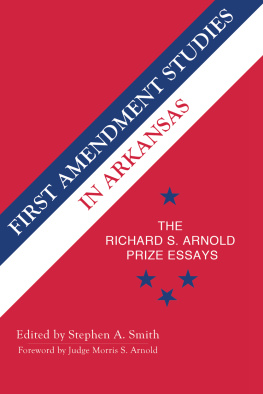






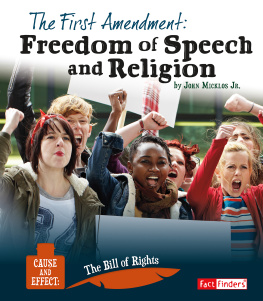
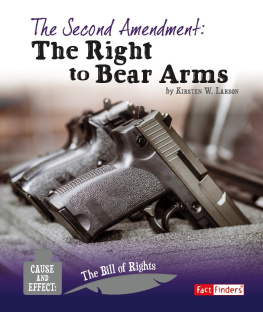
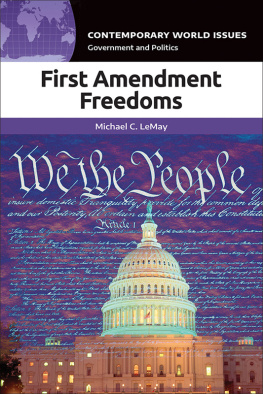
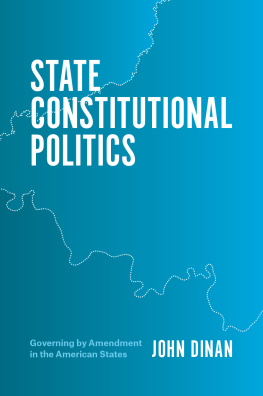
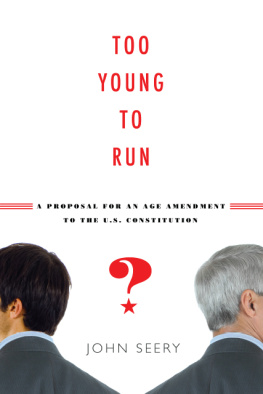
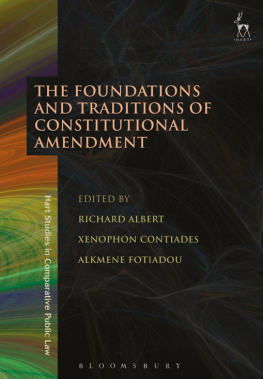

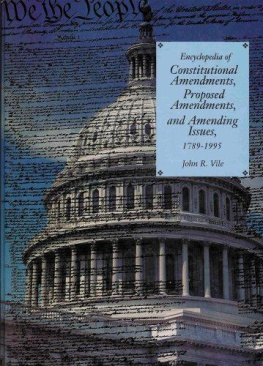

 The paper used in this publication meets the minimum requirements of the American National Standard for Permanence of Paper for Printed Library Materials Z39.48-1984.
The paper used in this publication meets the minimum requirements of the American National Standard for Permanence of Paper for Printed Library Materials Z39.48-1984.